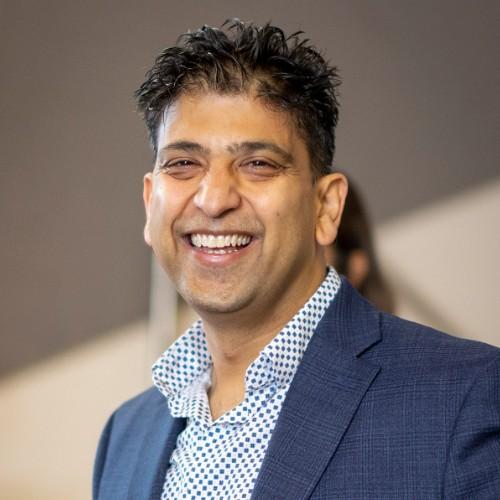
It is common for people to set goals for the new year, but sometimes those goals are not achieved. There can be many reasons why this happens, but some common challenges include a lack of motivation, a lack of a clear plan, and a lack of accountability. You might want to try something else this year. Here are some ideas for you to consider.
1. Develop Routines - Developing routines can be a helpful strategy for managing stress and improving overall well-being. To develop effective routines, it's important to start small and be consistent. Consider identifying one or two areas of your life where you would like to establish routines, and then gradually build on those habits over time. It can also be helpful to set specific goals and track your progress to help motivate you to stick to your routines. Here are a few ways in which routines can be beneficial:
Providing structure: Having a set of routines can provide a sense of structure and predictability in your life, which can help reduce stress and improve feelings of control.
Improving productivity: Establishing routines can help you be more efficient and productive, as you can plan your tasks and activities in advance.
Promoting healthy habits: Developing routines around activities such as exercise, sleep, and self-care can help you maintain healthy habits and improve overall well-being.
Reducing decision fatigue: Having routines can help reduce the number of decisions you have to make on a daily basis, which can help reduce decision fatigue and improve focus.
2. Ask the right questions - Asking the right questions can be a powerful tool for improving decision-making and problem-solving skills. By asking the right questions, you can gain a deeper understanding of a situation or problem and make more informed decisions. Here are a few tips for asking the right questions:
Identify your goals: Before you start asking questions, it's important to clarify what you hope to accomplish. This will help you focus your questions and ensure that they are relevant to your needs.
Be open-minded: Try to approach questions with an open mind and avoid jumping to conclusions. This can help you consider a wider range of perspectives and options.
Seek diverse viewpoints: Don't be afraid to seek out different viewpoints and opinions. Asking questions of people with different backgrounds and experiences can help broaden your perspective and provide new insights.
Use open-ended questions: Open-ended questions allow for a more in-depth and nuanced conversation. These types of questions encourage people to provide more detailed responses and can help facilitate a more productive dialogue.
Avoid leading questions: Leading questions are ones that are phrased in a way that suggests a particular answer. Avoid using these types of questions, as they can bias the conversation and limit the range of responses.
Example :
Why did I start this website or business? (Mission)
How do I see this website or business in the future? (Vision)
Why do I believe in this website or business? (My Values)
3. World is Full or both/and - Retraining your brain to consider "both/and" rather than "either/or" can be a helpful strategy for improving problem-solving skills and decision-making. Here are a few ways in which this approach can be beneficial:
Expanding your options: By considering "both/and" rather than "either/or," you can open yourself up to a wider range of options and possibilities. This can help you identify creative solutions to problems and make more informed decisions.
Improving communication: Adopting a "both/and" mindset can help you communicate more effectively with others, as you are more open to considering different viewpoints and finding common ground.
Reducing stress: Thinking in terms of "either/or" can create a sense of pressure and stress, as it implies that you have to choose one option over the other. By considering "both/and," you can alleviate this pressure and feel more relaxed and open to new ideas.
To retrain your brain to consider "both/and," it can be helpful to practice mindfulness and be more aware of your thought patterns. When you catch yourself thinking in terms of "either/or," try to take a step back and consider the possibilities that a "both/and" approach might offer. It may also be helpful to seek out diverse viewpoints and challenge your assumptions to broaden your perspective.
4. Start a new high-energy outdoor activity - There are several reasons why you may want to consider getting involved in a high-energy outdoor activity. Here are a few:
Physical benefits: High-energy outdoor activities can help improve physical fitness and provide a good cardiovascular workout. They can also help build strength and increase flexibility.
Mental health benefits: Outdoor activities can have a positive impact on mental health. They can help reduce stress and improve mood by providing an opportunity to get away from daily distractions and connect with nature.
Social benefits: Outdoor activities can provide an opportunity to socialize and make new friends. They can also help improve communication and teamwork skills.
Fun and enjoyment: Outdoor activities can be a fun and enjoyable way to spend your time. They can provide a sense of adventure and help you try new things.
Some examples of high-energy outdoor activities include:
These activities can provide a good cardiovascular workout and help improve physical fitness. It's important to find an activity that you enjoy and that is appropriate for your fitness level. Be sure to take necessary precautions and follow safety guidelines to ensure a safe and enjoyable experience. Overall, getting involved in a high-energy outdoor activity can offer a range of physical, mental, and social benefits. It can be a great way to stay active, reduce stress, and have fun.
5. Watch Top 10 Ted Talks For Inspiration - Storytelling can be a powerful learning tool, as it allows people to connect with and relate to information in a more meaningful way. Here are a few benefits of using storytelling for learning:
Engagement: Stories can help engage learners and keep them interested in the material. They provide a more interactive and immersive learning experience.
Memory: Stories can help improve memory and retention of information. They provide context and meaning for the content, which can make it easier to remember and recall.
Empathy: Stories can help build empathy and understanding by providing insights into other people's experiences and perspectives. This can help learners develop a deeper understanding of the material.
Transferability: The lessons and insights gained from stories can be more easily applied to real-life situations, making them more transferable to other contexts.
To use storytelling for learning, it's important to find relevant and engaging stories that align with the learning objectives. It can also be helpful to structure the story in a clear and logical way and provide opportunities for learners to reflect on and discuss the material. One of the best ways to learn storytelling is by watching/listening to other people telling their story. You can start by watching all-time famous Ted Talks.
Here are some of my suggestions about famous TED talks that you may find inspiring:
These TED talks cover a wide range of topics, including happiness, stress, motivation, and more. They may provide insights and inspiration on how to improve your well-being and achieve your goals.

My goal is simple, protect what is important to you. I focus my energy on discovering your exposure to risk and building a comprehensive plan to protect you against those risk.